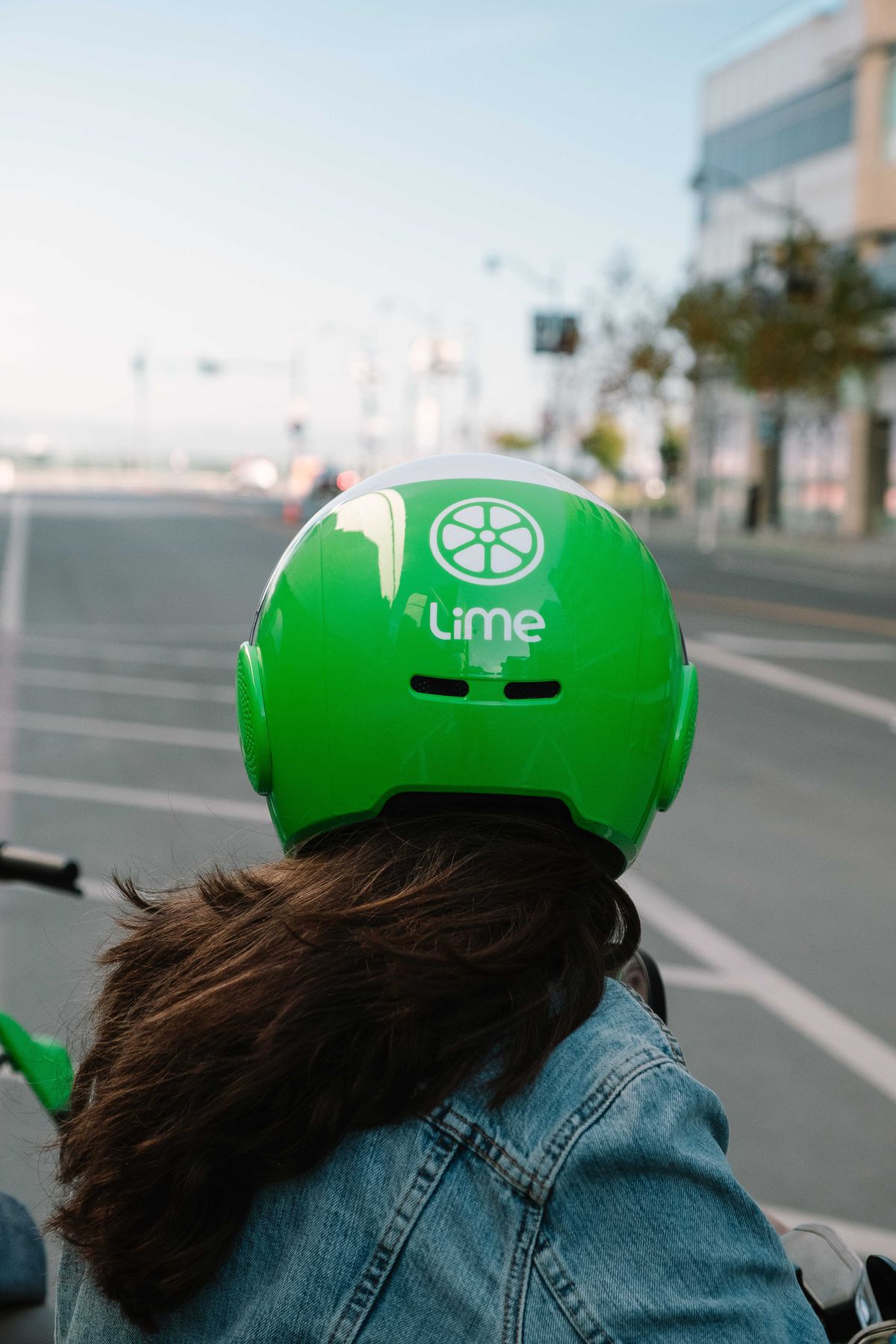Lime is adding a new member to its family of shared electric vehicles: mopeds. The mopeds are being offered as part of a pilot program to test whether Lime’s customers prefer vehicles that are faster, heavier, and arguably riskier to ride than your average kick scooter.
The mopeds can be rented via Lime’s smartphone app, just like the company’s e-scooters. Lime is still finalizing the price per mile for the mopeds, but it intends for it to be competitive with other shared mobility services.
Other scooter companies have flirted with expanding their product lineups to include mopeds, but Lime insists its pilot will presage a larger rollout in the spring. To start, Lime will be introducing mopeds in the coming months in just two cities: Washington, DC and Paris. The company plans to spread 600 mopeds around the US capital, while the number that will be rolling out in Paris is still to be determined. The mopeds will likely start hitting the streets in early March.
The mopeds are manufactured by NIU, a Chinese company that also supplies mopeds to New York City-based mobility company Revel. NIU’s mopeds typically get between 25–100 miles of range. Lime’s mopeds will be speed limited to 28 mph and can be controlled and monitored via wireless connectivity.
:no_upscale()/cdn.vox-cdn.com/uploads/chorus_asset/file/22261395/LIME_SAN_FRANCISCO_STREET_DREAMS_116.jpg)
The mopeds are intended to lend credibility to Lime’s claims of being more than just another scooter company. The company sees itself as a “platform” for different types of low-speed, electric-powered mobility. Last year, Lime added pedal-less e-bikes from Wheels to its app in several cities as part of a new effort to integrate third-party micromobility providers.
Lime CEO Wayne Ting claims his company is “the first micromobility provider to offer three vehicles on one platform.” (Gotcha, a 12-year-old company based in Charleston, South Carolina, previously offered electric kick scooters, seated scooters, bikes, and trikes on its platform. The company was recently acquired by another scooter company called Bolt.)
Mopeds are arguably a faster way to get around, but they can also be more dangerous, especially for novice riders. Revel was forced to temporarily shut down its service in New York City last year after two customers were killed and one was critically injured while riding the shared electric mopeds. The company eventually resumed service with new protective measures for riders like a mandatory in-app safety test and a requirement that all riders take a selfie of themselves wearing a helmet before they’ll be allowed to ride.
Lime is hoping to avoid a similar tragedy by embracing a number of safety measures right out the gate. Riders will be required to take a multichapter rider safety course, developed in partnership with the Motorcycle Safety Foundation. The test has been “optimized for learning retention,” Lime says, and must be completed before any user can begin a ride. Customers will only be required to have a driver’s license — not a motorcycle license — in order to ride.
Each moped also comes with two helmets, one big and one small, which are locked away in a cargo compartment at the back. Lime will have three different checkpoints to ensure riders can’t get away with cruising off without wearing a helmet. Riders will be required to take a selfie of themselves wearing the helmet, and there will be a prompt in the app to confirm the helmet is being worn. Also, the helmet compartment includes an infrared sensor that can confirm whether the helmet has been removed.
Helmets will be cleaned every time a member of Lime’s operations staff handles the moped — which will likely amount to once every three days or so. Lime will also offer head covers in each helmet for extra protection.
:no_upscale()/cdn.vox-cdn.com/uploads/chorus_asset/file/22261399/LIME_SAN_FRANCISCO_STREET_DREAMS_119.jpg)
Lime will also provide free 45-minute in-person lessons for all riders, taught by certified motorcycle instructors in small class sizes. According to the company, the lessons are designed to help riders get comfortable with maneuvers such as braking, turning, and parking.
“Lime will take strict enforcement measures for repeat safety violators, including removal from the platform, to avoid putting themselves and other road users at risk,” the company says.
Lime isn’t the first scooter company to dabble in mopeds. Bird introduced moped-style e-bikes, likely made by California-based e-bike company Juiced, in Los Angeles in 2019 and Austin in 2020. Also in 2019, Uber teamed up with French startup Cityscoot to integrate around 4,000 of the company’s mopeds into Uber’s app in Paris.
